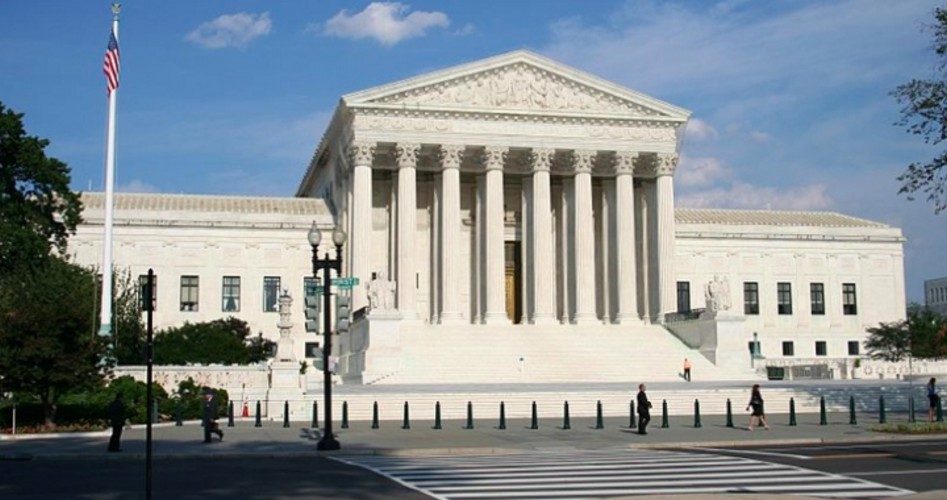
The Supreme Court dealt a victory to labor unions on Tuesday with a 4-4 decision on compulsory union dues, letting stand the lower court’s ruling in favor of the unions, the New York Times reports. The victory could be short-lived, however, as it is likely the court will hear further challenges on the issue after a ninth justice is appointed.
When the court heard arguments in the case in January, the majority at the time appeared poised to tell unions that they could no longer violate workers’ First Amendment rights by forcing public workers to pay dues to unions. But the sudden death of Justice Antonin Scalia tilted the court further to the Left.
Before the case reached the Supreme Court, a federal district court ruled in favor of the unions, and that ruling was later affirmed by the 9th U.S. Circuit Court of Appeals. A split Supreme Court ruling defaults to the lower court, dealing a major victory to labor unions.
The case, Friedrichs v. California, was brought by the Center for Individual Rights (CIR), which represented 10 teachers and a Christian education group. CIR argued that the California law that compels public employees who opt against joining unions to pay a “fair share service fee” equivalent to union dues is a violation of workers’ First Amendment rights.
The plaintiffs asked the court to overturn a 1977 precedent created by Abood v. Detroit Board of Education that permits public unions to force non-members to cover the costs of collective bargaining. That ruling determined that it was fair to ask non-members to pay dues so that they did not become “free riders,” a term for workers who would reap the benefits of union representation without having to pay union dues.
The plaintiffs contend that they should not have to pay dues to an organization that they feel does not represent them or their interests. “Really, these unions are not speaking on my behalf,” contended school teacher and plaintiff Rebecca Friedrichs. “They’re speaking on behalf of the union and the union leadership.”
Furthermore, the plaintiffs argued that despite the original intent to ensure that union dues by non-members are not utilized for political causes, the unions have become increasingly political over time. Additionally, even a union effort to increase salaries and benefits for teachers is political by nature, they argue, because it calls into question the best use of taxpayer dollars, a point which Justice Kennedy reiterated during arguments in January.
“Many teachers strongly, strongly disagree with the union position on teacher tenure, on merit pay, on merit promotion, on classroom size,” Kennedy stated, adding that the requirement to pay the dues ultimately forces teachers and employees who do not agree with those positions to “nevertheless subsidize the union on those very points,” in flagrant disregard of the First Amendment.
But according to David Frederick, a lawyer for the union, the positions the union takes in contract negotiations are outside of what is typically protected by the First Amendment, as they involve what he contends are “bread-and butter employment issues.”
In the opinion of the state, “Collective bargaining does not resemble the wide-ranging, open, and public debate that the First Amendment traditionally protects,” he added.
Just how long the unions will be able to enjoy Tuesday’s victory remains to be seen.
Terence J. Pell, president of the Center for Individual Rights, told the Daily Caller that he intends to file a petition for re-hearing with the high court because the case is simply “too significant to let a split decision stand.”
“Either compulsory dues are an acceptable exception to the First Amendment or they are not,” Pell said. “A full court needs to decide this question, and we expect this case will be reheard when a new justice is confirmed.”
Still, Pell was predictably disappointed with Tuesday’s tie vote. “With the death of Justice Scalia, this outcome was not unexpected,” he said.
But Trey Kovacs, an analyst with the Competitive Enterprise Institute, notes that the power to make changes to the compulsory union dues remains with the people.
“It is up to state legislatures to provide public employees with the freedom to choose whether or not to pay for union representation,” he said.




